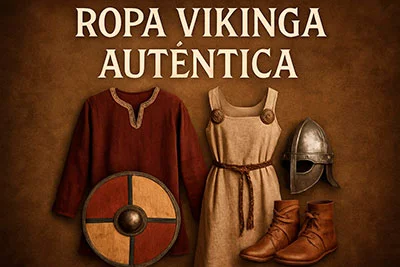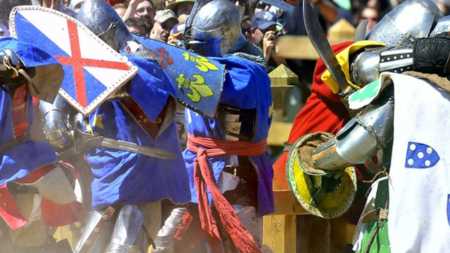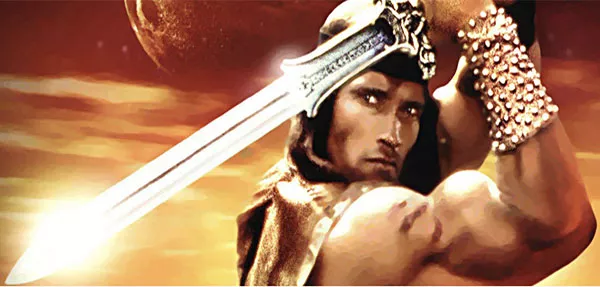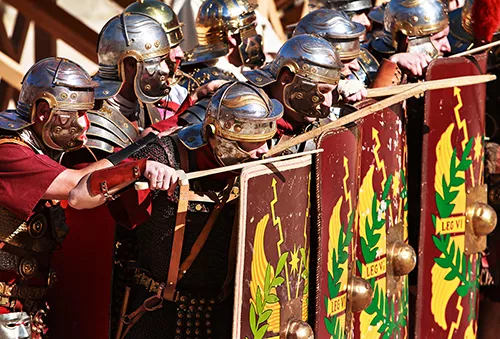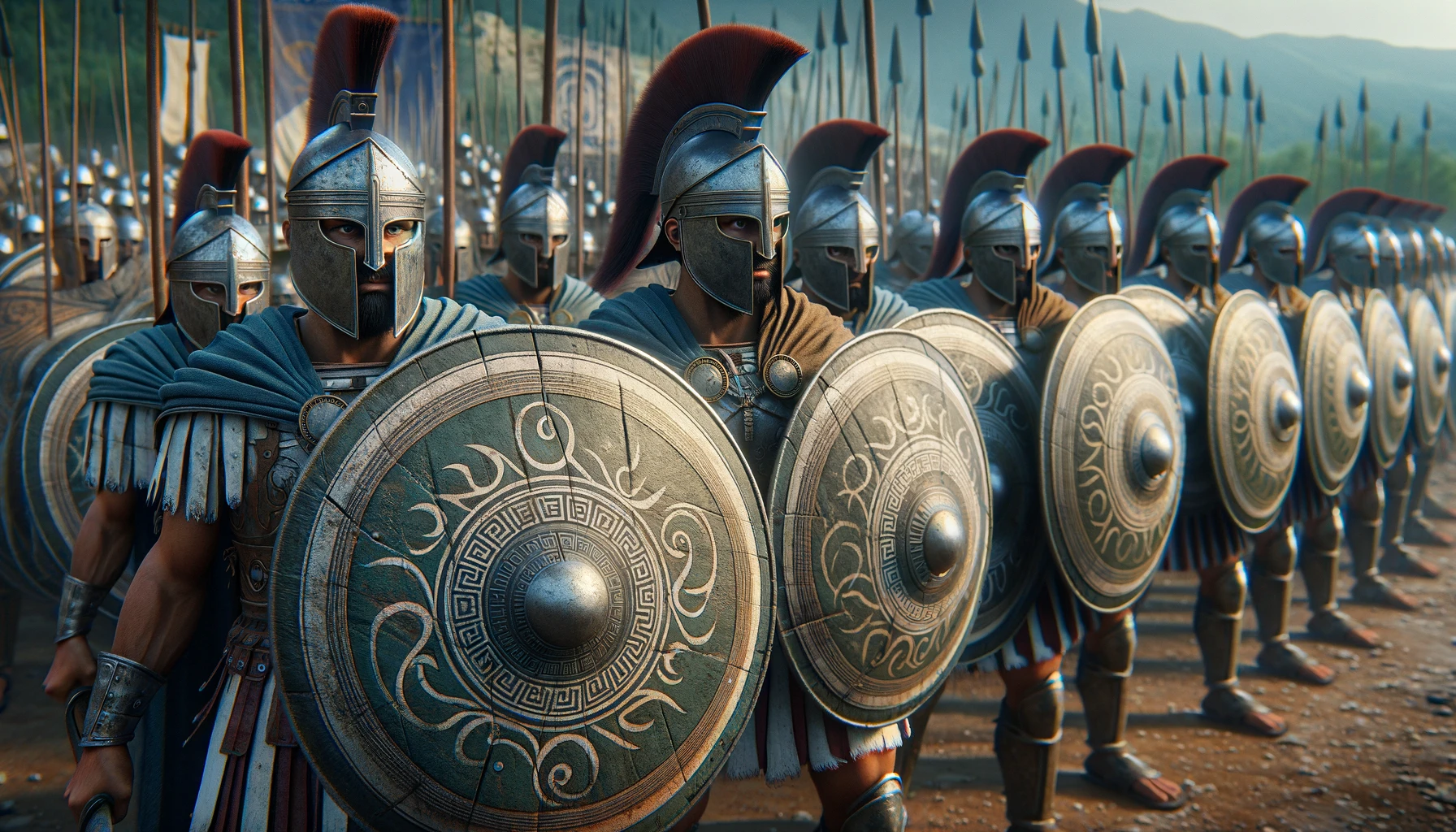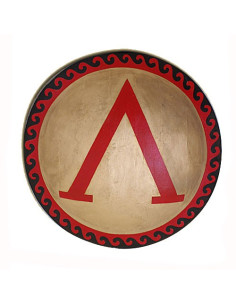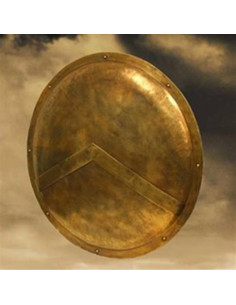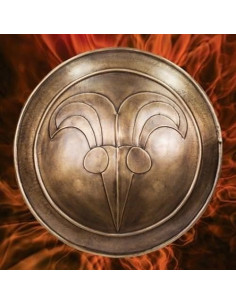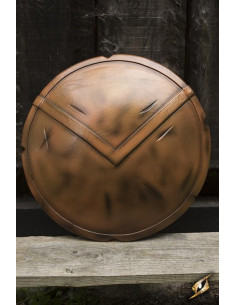greek shields
The History Behind Greek Shields
Greek shields have a rich history that dates back to classical times. Used by warriors in different city-states, each shield tells a unique story that reflects the culture and values of the civilization that forged it. From the times of the hoplites to the legendary Spartans, these artifacts were not only weapons of defense but also symbols of honor and bravery.
In the battlefield, the shield had to be more than just a simple tool; it represented the protection of its bearer and the unity of the phalanx, the military formation that defined Greek armies. Its design, often adorned with emblems and mythological figures, provided a sense of identity and belonging to those who used them.
Types of Greek Shields
There are various types of Greek shields, each adapted to the tactical needs of its bearers. Among the most well-known is the aspis, used by the hoplites, which had a round and solid shape, ideal for combat in formation. This design provided the soldier with comprehensive coverage, allowing his hand to remain free to handle weapons in the other hand.
On the other hand, the shields of Spartan warriors were also emblematic for their robustness and size, used to intimidate enemies. These shields became an iconic element of Sparta's military image, and their study provides valuable insights into Greek military strategy.
Symbolism and Design in Shields
The design of Greek shields was not only functional but also imbued with deep symbolism. From the depiction of deities to mythological figures, each shield told a visual story that inspired both its bearer and his allies. For example, many shields displayed lions or eagles, symbols of strength and courage.
These decorative elements also served as a means to instill fear in the adversary. The psychology of war was very present in the choice of these symbols; an impressive shield could make a significant difference in both combat and the morale of the soldiers.
The Crafting of Greek Shields
The manufacturing of shields in antiquity was a meticulous task that required both skill and creativity. Artisans used materials like wood and metal, often employing lamination techniques to increase the shield's strength and durability. These artisanal processes were an art in themselves, reflecting not only the craftsman's skill but also the aesthetics of the classical period.
The production process included carving patterns and applying paints, as well as the adornment of metallic elements that provided a special shine to the shield. Despite the evolution of techniques today, this manual and detailed approach remains a source of inspiration for collectors and history enthusiasts.
Greek Shields in Modern Culture
Todays’s society continues to be fascinated by Greek shields, as they symbolize strength and resilience. From video games to historical films, these elements are incorporated into various forms of entertainment, keeping the flame of Hellenic culture alive. The interest in shields has also led to a resurgence in the production of replicas, capturing the essence of those times.
Art exhibitions and museums have contributed to educating the public about their historical significance, highlighting the influence of Greek shields on military iconography and their role in the narrative of classical art. This not only preserves history but also revitalizes it, offering new interpretations and formats.
What material is used to make Greek shields?
Traditional Greek shields were primarily made of wood, covered with a layer of metal for greater strength. The combination of these materials allowed for the creation of shields that were lightweight yet durable. Today, modern materials such as latex or plastic are also used in replicas, aiming to simulate the appearance of the originals without compromising safety.
Where can I buy Greek shields?In our online store, we offer a wide variety of Greek shields that capture the essence and history of these emblematic artifacts. From replicas of historical battles to home decorations, you will have multiple options at your fingertips. Additionally, we guarantee that each product has been crafted with high-quality materials to ensure its durability and authenticity.
What size are Greek shields?The sizes of Greek shields vary according to type and specific use. For instance, the aspis, one of the most famous, typically has a diameter of around 80 cm, sufficient to provide adequate protection during combat. If you are looking for a decorative shield, there are also smaller options that are perfect for display at home.
Can Greek shields be customized?Yes, many replica manufacturers offer customization options for Greek shields. This can include choosing designs, specific colors, or even incorporating personal emblems. This additional customization can turn a simple shield into a unique piece that reflects your style or values.
Are Greek shields functional?While many Greek shields made today are designed for display or decoration, some are functional. These shields are often used in costumes or historical reenactment events, where an authentic experience is sought. However, it's important to keep in mind that durability and weight may vary, so they should be chosen carefully.
What is the importance of Greek shields in history?Greek shields were crucial not only in battle but also as symbols of identity and national pride. They were used to foster cohesion among troops and to intimidate the enemy. The way shields were designed and inspired by mythology reflects how Greek culture valued strength, beauty, and military strategy—elements that are still relevant today.
Are there Greek shields for children?Yes, in our online store we offer lighter and smaller versions of Greek shields, specifically designed for children. These replicas are perfect for role-playing games, costumes, or simply for young ones to explore their interest in history. They are made with safe materials that allow children to play and learn about ancient Greece in a fun way.
Discover our select collection of Greek shields that evoke the grandeur of ancient Greece. Perfect for collectors, history enthusiasts, or anyone wishing to add a heroic touch to their space. Visit us and choose the shield that best reflects your warrior spirit!

